
The founding chair of the department of brain health at the University of Nevada Las Vegas provided background on how a newly funded NIH grant will contribute to translational neuroscience research infrastructure. [WATCH TIME: 3 minutes]

The founding chair of the department of brain health at the University of Nevada Las Vegas provided background on how a newly funded NIH grant will contribute to translational neuroscience research infrastructure. [WATCH TIME: 3 minutes]

Dr Schmierer introduces the disease-modifying therapies (DMT) that are available for patients with MS and their impact on the immune system.

Klaus Schmierer, MB BS, PhD, FRCP, defines the pathophysiology of multiple sclerosis (MS).
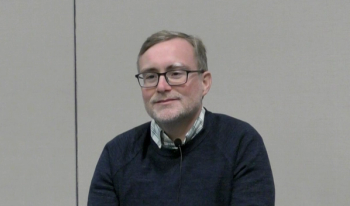
The assistant professor of neurology at the University of Pennsylvania discussed how 7T MRI features of newly developed MS lesions can predict the development of chronic active lesions. [WATCH TIME: 3 minutes]

The staff neurologist and medical director of the Barlo Multiple Sclerosis Program at St Michaels Hospital provided insight on the tolebrutinib’s mechanism of action, and new data presented at ACTRIMS Forum 2022. [WATCH TIME: 4 minutes]
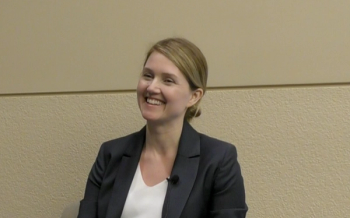
The staff neurologist at Cleveland Clinic’s Mellen Center for Multiple Sclerosis Treatment and Research offered her insight into improving the recognition of autoimmune encephalitis. [WATCH TIME: 2 minutes]

The assistant professor of pediatric neurology at Washington University in St. Louis provided an overview of cerebral palsy and ways to reduce the risk of developing the condition. [WATCH TIME: 3 minutes]
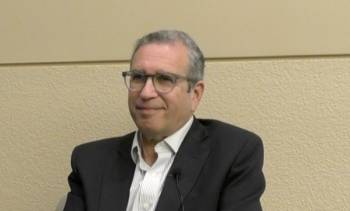
The William S. and Lois Stiles Edgerly Professor of Neurology and Professor of Immunobiology, and Neurologist-in-Chief at Yale-New Haven Hospital spoke to the findings of a recent assessment of T cells in multiple sclerosis. [WATCH TIME: 4 minutes]

Leigh Charvet, PhD, professor of neurology, NYU Grossman School of Medicine, discussed the potential feasibility of at-home tDCS for patients with multiple sclerosis to boost cognitive training. [WATCH TIME: 2 minutes]

The staff neurologist and medical director of the Barlo Multiple Sclerosis Program at St Michaels Hospital discussed the lack of guidelines for patients with RIS and the research efforts needed going forward to establish them.

The staff neurologist and medical director of the Barlo Multiple Sclerosis Program at St Michaels Hospital discussed her presentation at ACTRIMS Forum 2022 involving imaging biomarkers of RIS/MS prodrome. [WATCH TIME: 4 minutes]

The director of the VA Southwest Parkinson’s Disease Research, Education, and Clinical Centers and clinical professor of neurology at UCLA spoke to the importance of understanding the challenges specific to women with Parkinson disease. [WATCH TIME: 8 minutes]

The senior vice president and chief scientific officer of the Parkinson’s Foundation spoke on the initiative, which offers free genetic testing and counseling for patients with Parkinson disease. [WATCH TIME: 2 minutes]
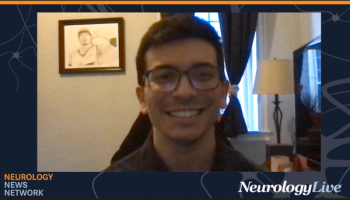
Neurology News Network for the week ending March 4, 2022. [WATCH TIME: 4 minutes]
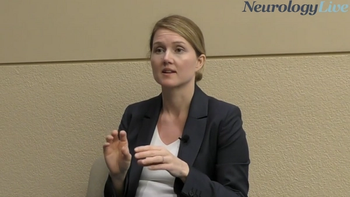
The staff neurologist at Cleveland Clinic’s Mellen Center for Multiple Sclerosis Treatment and Research discussed the results of a new study on age and sex as determinants of autoimmune encephalitis. [WATCH TIME: 3 minutes]

The senior vice president and chief scientific officer of the Parkinson’s Foundation outlined the new CE course, as well as the benefits of being granted Joint Accreditation. [WATCH TIME: 4 mintues]
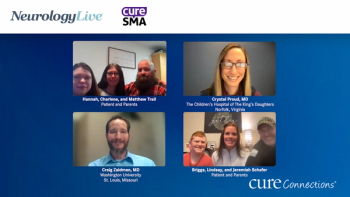
Crystal Proud, MD, demonstrates a typical neurological telehealth exam for pediatric SMA with one of her patients.

Families with patients with SMA share advice for community neurologists on helping new patients through the diagnostic process.

Patients describe how their lives have changed since their SMA diagnosis, and a neurologist provides advice for community physicians.
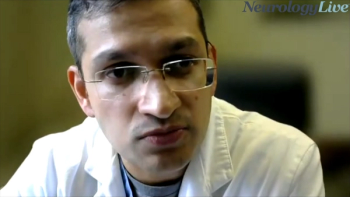
The vascular neurologist at Allegheny Health Network discussed ways to grow the RapidAI software and the need to conduct additional, large-scale research. [WATCH TIME: 3 minutes]

Crystal Proud, MD, and Craig Zaidman, MD, discuss the necessity and urgency of genetic testing for SMA in children and adolescents.

Experts explain the next steps for families and physicians after SMA is suspected in a child.

An overview of the signs and symptoms that physicians look for in telehealth exams when SMA is suspected.

The Distinguished Professor Emerita at Indiana University School of Nursing outlined the next steps those in the field of epilepsy need to take to address and tackle this ongoing issue. [WATCH TIME: 3 minutes]

A discussion of the benefits of using telehealth for SMA management for clinicians and families.

Two pediatric neurologists describe their experiences with telehealth appointments for SMA during the COVID-19 pandemic.

Craig Zaidman, MD, discusses how critically important newborn SMA screening is and early diagnosis and treatment of SMA.

Families describe their diagnostic journeys with SMA and when they were referred to SMA specialists.

The Distinguished Professor Emerita at Indiana University School of Nursing spoke on key takeaways for clinicians when it comes to helping tackle stigma, as well as the need to educate patients and their families about the condition overall. [WATCH TIME: 4 minutes]

Episode 19 of the AUPN Leadership Minute features Mud M Alvi, MD, of West Virginia University; and Susan Matulevicius, MD, MSCS, of UT Southwestern Medical Center. [WATCH TIME: 4 minutes]